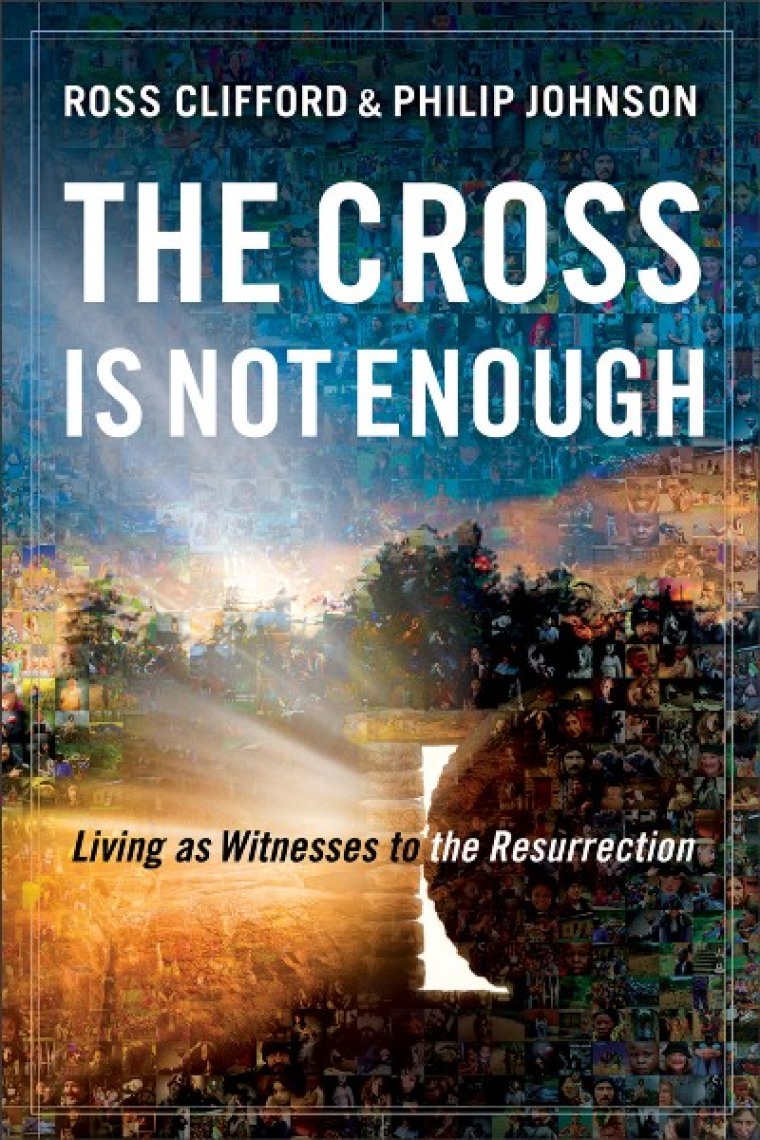
Clifford and Johnson claim that as strange as it might seem, the cross of Christ is not the centre of Christianity.
The question they pose is: "What effect does forgetting the importance of the resurrection have on our worldview, our discipleship, our ethics, our evangelism, and our Christian practice?"
Clifford and Johnson in "The Cross Is Not Enough" explore how the resurrection of Christ has been understood in times past and restore this linchpin doctrine to its rightful place as the basis of our hope, our worldview, and the way we live our lives every day.
They compare Christianity's unique understanding of resurrection to other world religions, explore why the resurrection connects so readily with the human psyche, and trace themes of resurrection through movies, books, music, and other aspects of popular culture.
Their conclusion is that without the resurrection there is no life. Moreover leading theologians agree.
What others have said
Craig Blomberg, distinguished professor of New Testament, Denver Seminary says: "Without the resurrection, Jesus' death would scarcely have atoned for anyone. So why do treatments of the resurrection focus so little on its theological meaning and practical applications for life in this world? Clifford and Johnson rectify this problem."
Darrell L Bock, research professor of New Testament studies, Dallas Theological Seminary, says of it: "Have we lost seeing the significance of the resurrection for the Christian? It correctly contends we need to regain an emphasis on the resurrection. Hopefully in doing so, we can see how the resurrection and the cross work together to form the core of Christian hope."
Gary R. Habermas, distinguished research professor, Liberty University & Theological Seminary says of it: "This is not your typical book that approaches Jesus' resurrection from an evidential or soteriological angle. Clifford and Johnson argue that, as crucial as it is, the Cross of Christ is not the center of Christianity. Rather, the authors go beyond evidential studies in order to relate Jesus' resurrection to a holistic, full-orbed approach to Christian theology, mission, discipleship, as well as the daily life of the believer.
And three more theologians
John Drane, fellow of St John's College, University of Durham; author of The McDonaldization of the Church and Introducing the New Testament says of it: "Inspired by faithfulness to the Bible, and informed by a sophisticated understanding of contemporary culture and the spiritual search of our generation, Ross Clifford and Philip Johnson have written a book that is both challenging and empowering for all who are concerned to communicate the heart of the Christian faith to today's people."
Michael Quicke, Charles Koller Professor of Preaching & Communications, Northern Seminary says of it: "Arguing brilliantly for the resurrection to take back its place on center stage, this book carries readers on an exhilarating journey through wonderfully unexpected territory. Immensely practical, with its twelve zones of resurrection living and apologetic concern for skeptics, and grounded solidly in Scripture, it marshals astonishingly wide-ranging evidence for the resurrection in culture.
Australian Michael F. Bird, lecturer in theological studies, Crossway College; author of Are You the One Who Is to Come? The Historical Jesus and the Messianic Question, says of it: "Christians say that they believe in the cross and the resurrection, but sadly many Christians focus almost exclusively on the cross and regard the resurrection as an appendix that God tacked on to prove that Jesus died for their sins. In this book, Ross Clifford and Philip Johnson show that many Christians are operating with a half-told Easter story. Clifford and Johnson describe what it means to have an authentic resurrection faith that drives theology, missions, spirituality, thinking about culture, and church life. Read this book!"
Heroes of conservative orthodox Christianity
So there you have it, the book "The Cross Is Not Enough" gets the theologians' nod. Conservative Christians have found a couple of heroes who can argue academically and practically for orthodox Christianity's "resurrection" well spring.
Ross Clifford is the principal of Morling Theological College in Sydney, Australia. A former lawyer and pastor, he is cofounder with Philip Johnson of The Community of Hope. Philip Johnson is a visiting lecturer in apologetics and alternative religious movements at Morling Theological College in Sydney, Australia.
Dr Mark Tronson is a Baptist minister (retired) who served as the Australian cricket team chaplain for 17 years (2000 ret) and established Life After Cricket in 2001. He was recognised by the Olympic Ministry Medal in 2009 presented by Carl Lewis Olympian of the Century. He has written 24 books, and enjoys writing. He is married to Delma, with four adult children and grand-children.
Mark Tronson's archive of articles can be viewed at www.pressserviceinternational.org/mark-tronson.html